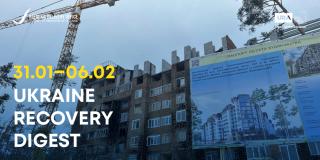The Civil Service Candidate Screening Center was recently launched. What does it mean, and how will it make lives easier?
Error analysis
Competitive selection for new civil service has been criticized by everyone, especially candidates. It's very hard to find a candidate who would not have pointed to at least one shortcoming.
It is quite natural, on the other hand, because fault-finding is our national sport, and the pilot project introducing new civil service positions is imperfect indeed.
However, errors are analyzed continuously. The competitive selection procedure has been revised on numerous occasions, with candidate selection repeatedly "patched up" and some of its elements corrected.
Currently, an effort is being made to change things systemically. It is to serve this purpose that the Civil Service Candidate Screening Center has been set up.
Government outsourcing
When forming the concept of the Center in conjunction with the National Agency of Ukraine for Civil Service and peer agencies, we set ourselves an ambitious goal of creating a convenient service for ministries.
If you want to select new staff for your agency in a professional, quality, and transparent manner, contact the Screening Center. This is a government outsourcing company or a one-stop shop prepared to take care of part of the entire complicated process.
Now we have a decentralized selection model with each agency holding competitive selection itself — a model increasingly criticized for many reasons.
We have developed a concept and vision of the Center based on European best practices, including the model of centralized candidate selection for all European institutions (EPSO).
The key is really wanting to improve the quality and impartiality of assessment of candidate civil servants and optimize assessment.
Take a quick look at selection stages to understand how the Center will operate in the future. Simply put, selection is made up of thee elements:
- testing — the automated part that candidates take on computers;
- solving situational problems — the part where the person's competence is checked;
- interviewing — required to make the final decision.
Right now, launch of the Center involves outsourcing and centralizing only the first part of competitive selection — a test of analytical skills, verbal and numerical reasoning. Special premises have been already allocated and 55 modern workstations fitted up for candidates.
The first wave of test takers will include newly introduced civil servants, the so called reform experts, and top civil servants. Upon completion, candidates will be getting test certificates.
Centralized HR
The next, and much more important, stage is centralization of competency assessment at the Center.
Why is it most critical? The experience of competitive selection for new civil service positions suggests that it is this element that has become the toughest challenge and most difficult test for selection commissions.
This rather peculiar procedure requires skills that many members of selection commissions lack. Profoundly knowing and understanding the substance of each criterion, separating a general impression of the candidate and their individual competences, abstracting oneself from past experience with this candidate and evaluating them by behavioral patterns are all quite challenging tasks that greatly impact the ultimate result — personnel selection.
A selection commission that does not have these skills often produces unfavorable results, primarily for external candidates. This creates distrust in the selection procedure and accusations of nepotism and corruption. In turn, this puts decent candidates off participation in future selections.
It is the Screening Center that can help us break out of this vicious circle as it should employ professional HR staff, recruiters and methodologists in the future who are professionally engaged in selection and independent assessment.
The third element, interview and assessment of professional expertise will be implemented by government agencies themselves. The Screening Center cannot and should not overtake this function because the employer should have the final say in staff selection for their agency.
A lot of work is still to be done. Will the Screening Center start operating with all expected functions any time soon? It may be too risky to offer any projections for the election year.
It must be remembered, however, that the country has people working all the time (regardless of the political cycle and environment) who do care. It is them that we are calling on to join civil service and take the long path of quality change in the culture of governance together with us.
And do not give way to disappointment, something that can always wait.



